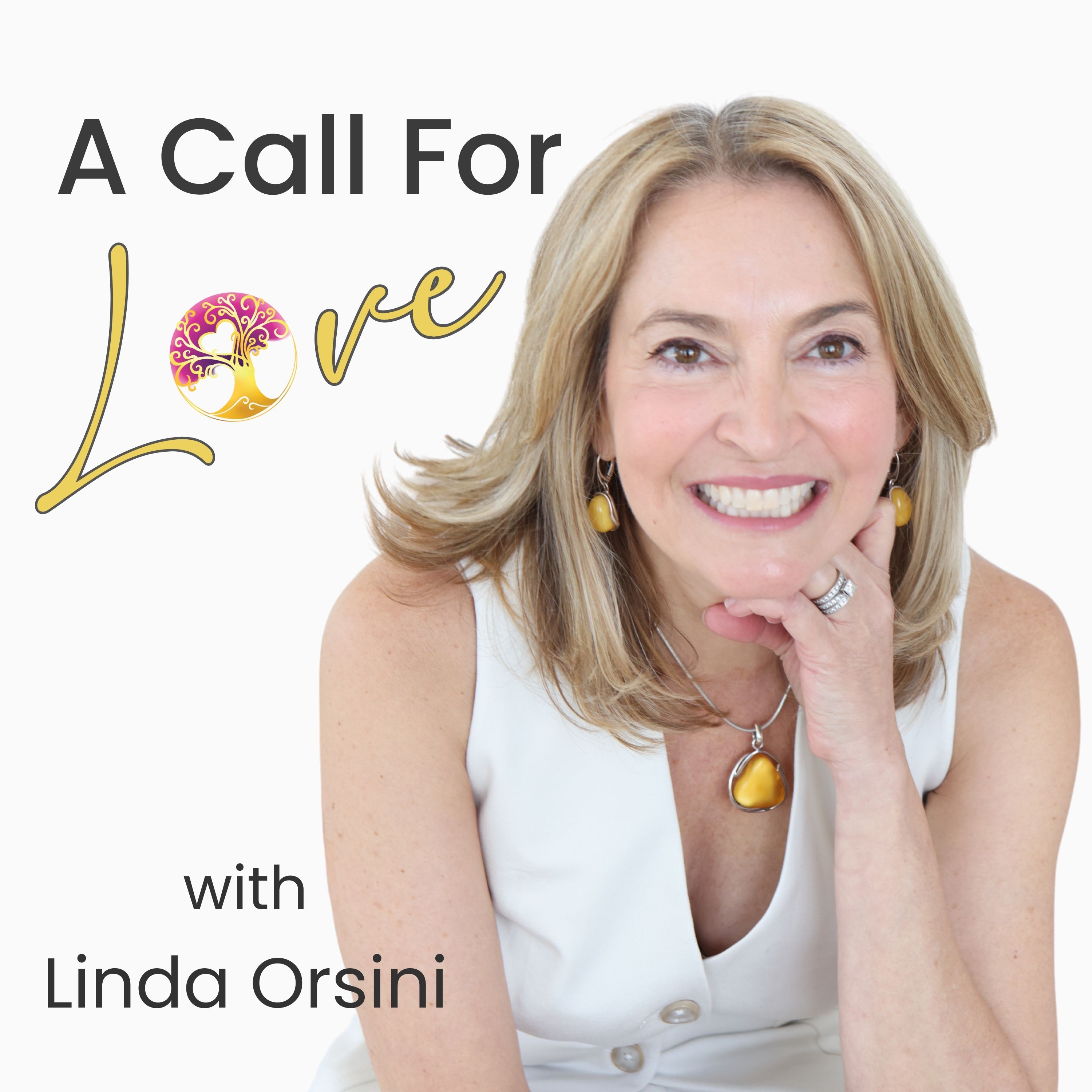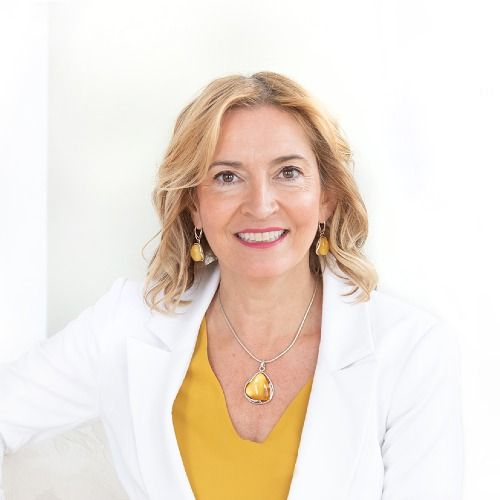Your Best Self With Effortless Action: The Four Agreements Bookclub (Part Four) l S2E097
In this episode, Linda Orsini explores the fourth agreement, Always Do Your Best, and how it ties into living with effortless action. Discover how awareness, self-compassion, and Taoist principles like Wu Wei can help you move beyond perfectionism and find flow in your life.
Key Take Aways:
- Effortless Action: Live in alignment with your true self through Wu Wei.
- Awareness: Be present to do your best, no matter your energy level.
- Self-Compassion: Be kind to yourself to release perfectionism.
- Breaking Free from Victimhood: Shift from blame to empowerment with awareness.
- Using Your Gifts: Honour your divine gifts by putting them to use.
Website: lindaorsini.com
Soul Skool: Join From Shadow to Shine Here
Follow Linda on Instagram: https://www.instagram.com/lindaorsiniwellness
Heal with H.E.A.R.T. Transformation Program
About Linda:
I’m Linda Orsini, host of A Call for Love podcast and founder of Soul Skool, a community where seekers evolve with clarity, compassion, and courage.
After decades as a teacher, I realized the deepest education is that one of the soul. My journey through anxiety and self-doubt led me to meditation, yoga, Reiki, sound healing, and emotional freedom practices. Now I guide others through retreats, trainings, and Soul Skool to return home to themselves and embody their best life.
A Call for Love is your space to pause, reflect, and awaken self-love. Because when we heal ourselves, we help heal the world.
Thank you for listening!
Thanks so much for listening to our podcast! If you enjoyed this episode, please spread the love by sharing it with others.
Subscribe to the podcast
Please subscribe if you would like to get automatic updates of new podcast episodes.
Leave us an iTunes review
Ratings and reviews from our listeners are extremely valuable to us and greatly appreciated. They help our podcast rank higher on iTunes, which exposes our show to more awesome listeners like you. If you have a minute, please leave an honest review on iTunes.
Transcript
Welcome to A Call for Love. Today we are talking about the fourth agreement. So if you've been following along, we've been talking about the Four Agreements by Don Miguel Ruiz. The first one is "Be impeccable with your word," then it's "Don't take anything personally," "Don't make assumptions," and today, we're talking about "Always do your best."
If you haven't listened to the previous episodes, go back. Each one has a gem, and they build on each other. It's really true.
[:Today, you're going to really hold space for this concept of "Always do your best." I feel like we are really hard on ourselves today in this world that we're living in, that almost doing our best feels like more pressure. I know for me, I am quite a perfectionist, and I've had to actually let go of always doing my best in terms of perfectionism. My new motto is "done is better than not done." But this doesn't really have to talk about necessarily for me; this is my interpretation of this book.
[:What it's really talking about, for me, is awareness, right? We're always doing the best we can with what we know in each moment, and the more aware we become in each moment, the better we can do our best. Now, it kind of goes back to the other agreements. So, let's think about this for a moment. We are changing moment to moment, day to day, minute to minute, hour to hour, week to week, month to month, year to year. We're never the same people. Never, ever. And thank goodness! I have some wonderful memories, but I do not want to go back. I want to move forward.
[:And this awareness of always doing your best, it asks us to be more present in this moment with greater clarity. Now sometimes, you know, we wake up with low energy or we wake up with high energy. So our best is going to change according to who we are in each moment. That's where self-compassion comes in—like being kind to ourselves with where we are in each moment. That's very, very important, and you can think about that in your own life. It’s very hard and unfair of ourselves to expect what we're not able to give.
[:Now, this brings me to WWE. If you've heard of WWE, it's based on Taoist teachings, and it's from the Tao Te Ching. Love, love, love it! Written by Lao Tzu, and WWE means effortless action. So, you could say, "What does that mean?" Effortless action means being true to your vibration, to who you are. It means living and working from the best place of presence—holding space so that you can allow your higher self to flow through you, that you could allow the divine to flow through you, Source to flow through you.
[:Because sometimes, and I am speaking for myself, I feel I know what's best for me, and so I push, push, push. I call it "manic manifesting." Push, push, push. Well, that actually goes against effortless action. Because really, when you're in the divine flow, what happens is it happens very fluidly, very beautifully, very naturally, and it's just like bing, bing, ping, ping, ping. Everything works out. Beautiful.
[:Now, I want to refer to this book because I just have to share this. I’ve shared this with my clients and in some meditation classes, and it's worth listening to. There was a man who wanted to transcend his suffering, so he went to a Buddhist temple to find a master to help him. He went to the master and asked, "Master, if I meditate four hours a day, how long will it take me to transcend?"
The master looked at him and said, "If you meditate four hours a day, perhaps you will transcend in 10 years."
[:Thinking he could do better, the man then asked, "Oh master, what if I meditated eight hours a day? How long would it take me to transcend?"
The master looked at him and said, "If you meditate eight hours a day, perhaps you will transcend in 20 years."
"But why? Why will it take me longer if I meditate more?" the man asked.
The master replied, "You are not here to sacrifice your joy or your life. You are here to live, to be happy, and to love. If you can do your best in two hours of meditation, but you spend eight hours instead, you will only grow tired, miss the point, and you won't enjoy your life. Do your best and perhaps you'll learn that no matter how long you meditate, you can live, love, and be happy."
So, that's page 77 and 78 in the book The Four Agreements.
[:What this talks about is that when we push, when we push against the natural flow of things, our egoic mind is coming into play, and we're not allowing our higher self, the truth, to come through. We're kind of manipulating it. And that's what WWE is—effortless action.
[:For instance, I wanted to record this episode yesterday, and it just wasn’t flowing. It just wasn’t a good day to record this episode. And I thought, you know, I could force it and get it done because it was on my list of things to do. Or, you know, I could practice WWE, effortless action. I could give it the space it needed to come to life. And this is the gift: knowing when we're in the awareness to do the thing that we need to do.
[:Now, I love this quote from Leo Buscaglia: "Your talent is God's gift to you. What you do with your gift is your gift back to God." And Leo Buscaglia was a great man and teacher from long ago. My mom loved him. But really what he was saying here is that we are given gifts. If we are not using our gifts, we’re not thanking the person or the source that gave us our gifts. So the greatest way we can honor is to use our gifts.
[:It's like a parent watches their child thrive with their gifts. It's the greatest gift you could get back. It's the same kind of concept. So if we have the ability to do our best in a certain area of our life, then I would almost say it's our dharma to fulfill it, to do it. Because then we're giving back. We're giving back the gift that we've been given. And you know, it's honoring the divine spark within you. When you honor that divine spark, you hold space for it.
[:You become aware, and then you can do your best. Because doing your best in these terms means following the first three agreements: Be impeccable with your word, be mindful of your words, and don't take things personally.
[:I had a book club, and we had a meeting when a lady said, "I do not like the word impeccable." It did not resonate with her. So she changed it to "be mindful of your words." And you know, that's what we are all asked to do: we are asked to take these concepts and make them our own. Some things will resonate and some things won’t, and it’s all good.
[:Doing your best is not taking things personally because that's not reacting from our best selves. When we make assumptions, doing our best would be not to make assumptions and to ask questions, to be curious, like that child I mentioned in the previous episode. Doing our best is like the ribbon.
[:Now, what stops us from doing our best is the lack of freedom that we have. What happens is we have these stories, these narratives, and Don Miguel calls them these agreements. We blame, right? We blame, we say, "I can't do my best because I'm tired," "I can't do my best because I don't have enough money," "I can't do my best because my partner isn't doing this," or "my boss is this." We blame—ourselves, others, or life.
[:But he says here, and I think it's quite profound, on page 96: "What else could they teach you but what they know?" He’s talking about parents. "Our parents did the best they could. And if they abused you, it was due to their own domestication." Domestication being their socialization, their fears, and their beliefs. They had no control over the programming they received, so they couldn't have behaved any differently.
[:There’s no need to blame your parents or anyone who abused you in your life, including yourself. But it’s time to stop the abuse. Sometimes, our hardest critic is ourselves, our inner critic. That comes back to the awareness piece—being really aware of that inner dialogue.
[:When we blame, we fall into the space of victimhood. And when you’re a victim, it’s a really dark place to be because you’re giving away your power. When you’re in victimhood, you’re giving away your power. You’re pointing the finger at every other circumstance.
[:But when we do our best, we create the awareness of knowing when we’re following our old programming, our self-limiting beliefs, and our inner critic—that’s the judge. When we believe the patterns from our ancestors, we are carrying seven generations of them. When we do our best, we become aware of what we're holding onto that was given to us.
[:And when we become aware of that, we can set ourselves free. Through this awareness, we know where we’re doing the work. We set the triggers for when we’re taking things personally. When you’re triggered, that’s where the inner wound is. That’s where the judge is. When we soften and free that, then we can move into that freedom.
[:When we heal ourselves, we heal the world. All right, from my heart to yours. Namaste, my dear friends.

